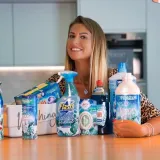
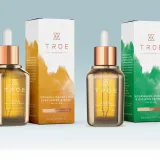

HOW TO STOP YOUR BRAND FROM MAKING PEOPLE FEEL NOTHING AT ALL
The duty of brand marketing is to engage and entertain

What if I told you that to be effective, your brand marketing needs to be entertaining?
You probably wouldn’t argue. You know it’s intuitively correct. No one will tell you that they don’t like entertaining ads. And by entertaining we are referring to three things. Humour, emotional engagement and story-telling. Great ads are typically a combination of all of these.
Christmas TV ads in the UK are a case in point. You may have noticed a return to humour this year.
The Shocking Truth: Your Ads Should Be... Entertaining
It seems like having largely abandoned the need to entertain for a decade or so, brands are rediscovering it.
I’m not going to go into the rationale for brands forgetting the fundamentals of the craft of advertising. Suffice it to say that it is quite obvious if you are listen to great commentators like Steve Harrison (Can’t Sell Won’t Sell) and Nick Asbury (The Road to Hell), that brands have been through a terrible period of insincere earnestness about their role in the world. Distracted by an ideology that demands brands have a ‘Purpose’ beyond their actual – purpose, they have instead become new Puritans, hectoring and lecturing their buyers about fashionable causes that they themselves hold dear.
Telling your customers they are toxic
The most obvious example was Gillette, and their ‘toxic masculinity’ campaign. They learnt the hard way that trying to make your customers feel bad about themselves means they stop buying your brand. P&G is my alma mater, and I can still now hardly believe they made this mistake. Ten years working with health and beauty brands and polling thousands of consumers has taught me one thing in particular. People want those brands to help them feel good about themselves. Health and beauty brands have a unique ability to deliver that feel good factor.
The sad reality is that over a 20 year period, marketers have demonstrably got worse at their job. Distracted by virtue signalling rather than selling their brands, they have bored and alienated their audiences with preaching. Witness the most changed chart in BBH Labs ‘Charts that don’t change’ series on human behaviour. The percent of people annoyed by TV ads has doubled.
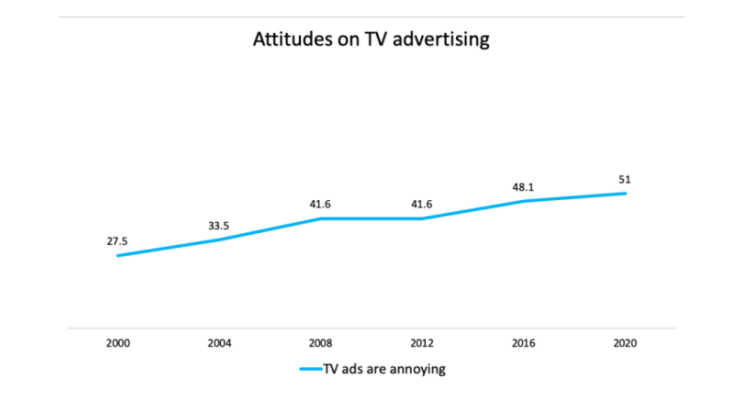
Likewise System1 who demonstrate a correlation between the decline in brand building and emotion and link it to the rise in short-termism and digital media spend (the ‘Long and the Short of it’ identified 10 years ago by Binet & Field).
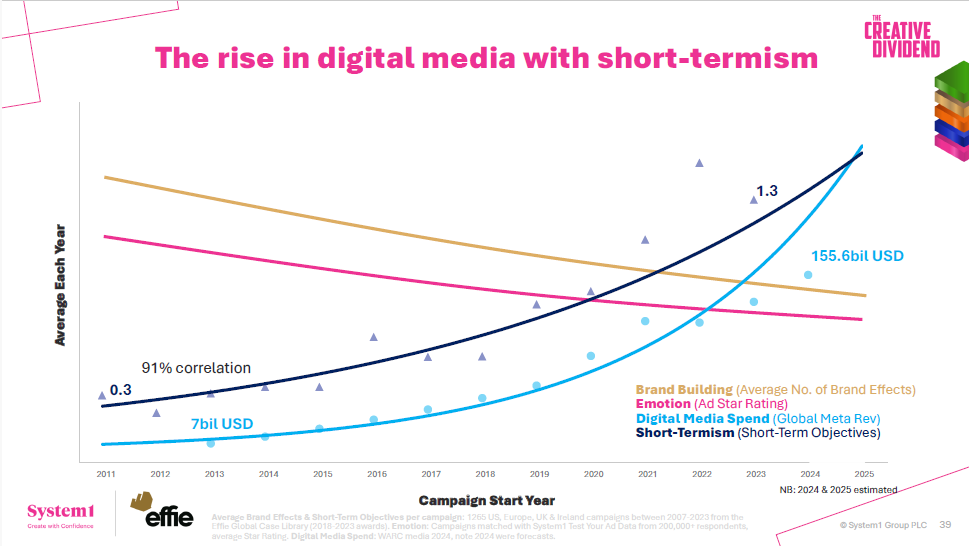
How entertaining are brands in health & beauty?
So although the need for entertainment in advertising is universal, because many of our clients are in health and beauty, I am going to focus in on what it means if you have a health and beauty brand. Does your brand need to be funny?
No. But you need a formula to engage. And many health and beauty brands seem to fail. How well is health and beauty doing in the entertainment stakes?
Well according to Sytem1 (who assess thousands of ads each year for emotional response) - not very well.
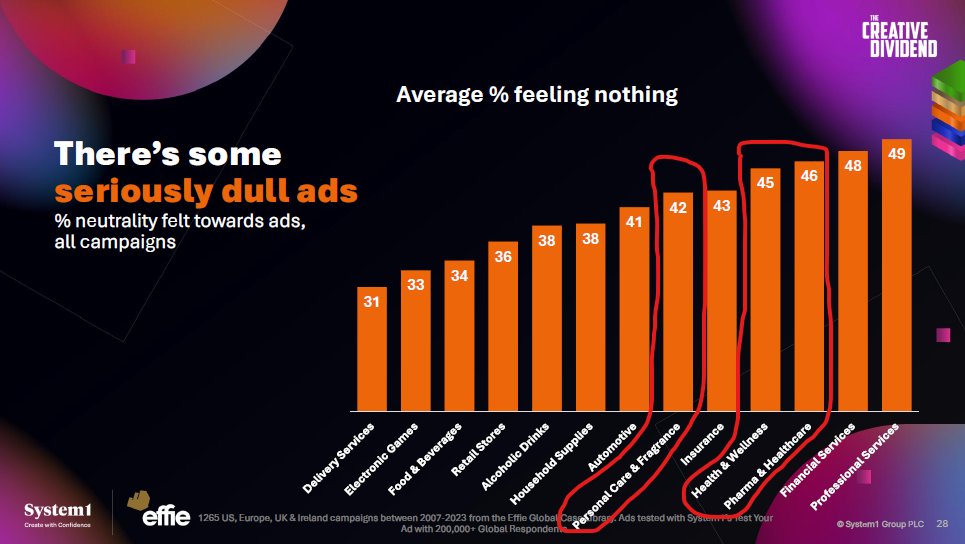
Oh dear. The good news is that ads for professional and financial services perform worse. Otherwise, almost nothing performs more badly than the health and beauty category for making people ‘feel nothing’ with their advertising. Given the category’s principal purpose of making people feel good about themselves, that is a disaster.
So what can be done to change this?
I am going to try to identify some formulas that health and beauty brands could use to make people FEEL something about their brands.
Dr. Squatch – Soap, Swagger, and Self-Awareness
I recently wrote about why Dr Squatch is a breath of fresh air in beauty advertising today. It’s irreverent, funny and entertaining and that makes it distinct today.
Recently purchased by Unilever in the most obvious U-turn of their previous ‘Brands must have Purpose’ (with a big P) mantra, the brand pays homage to the (equally bucking the trend Old Spice (P&G) ad ‘The Man Your Man Could Smell Like’ ad of 2010.
If there was a flaw in the Old Spice advertising it was that the same degree of humour has not been sustained since the 2010 campaign. Dr Squatch on the other hand has been using the same tongue-in-cheek positioning for its brand since teaming up with branding agency Rainbow Marketing in 2017.
This approach is not for every brand, but (I realise the risk of saying this) I think it its more likely to work well when your target is men (as per Old Spice and Dr Squatch). Research conducted by Pull London showed that men are just as interested as women in for instance aesthetic procedures. However, I suspect that there are a lot of unreconstructed men who really don’t want others to think that they take their appearance too seriously. Buying brands that don’t take themselves too seriously either is appealing to this group.
Drunk Elephant – A Brand That Knows Its Tone (Mostly)
Most people in health and beauty will be familiar with Drunk Elephant. Founded in 2013 by mom and entrepreneur Tiffany Masterson it is famous for its meteoric rise, cult-like following, and the fact that it was bought for around 10x it’s annual sales (US$845) by Japanese beauty giant Shiseido in 2019, like many brands bought from their founders by large brand houses, it has fallen from grace more recently as sales declined in 2024 by 25% and by 57% in Q2 2025.
However, Drunk Elephant remains the brand that Pull London most frequently has cited by our smaller brand development clients as having the brand personality that they would want their brand to have. Why is this?
We recently broke this down for one of those clients. We had conducted research that showed our client’s brand’s strongest brand personality trait was their approachability. The research also indicated that some of their competitors were alienating purchasers in the category with an overly glamorous approach to model selection and Instagram posts. So what did Drunk Elephant get right? They created an approachable, relatable brand on a straightforward premise that talked to you like your BFF who makes you laugh with their posts.
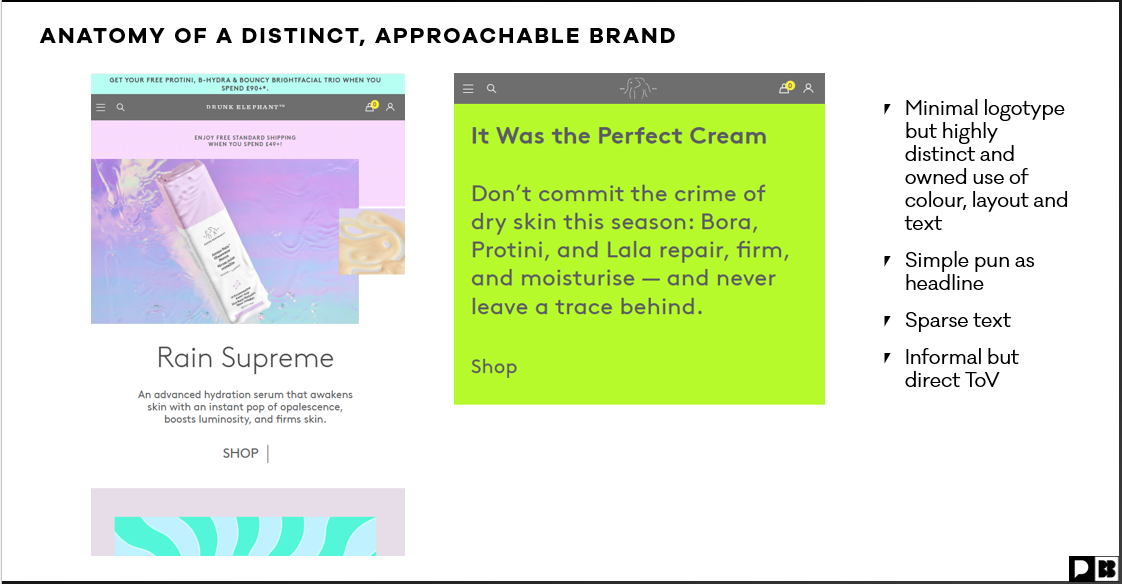
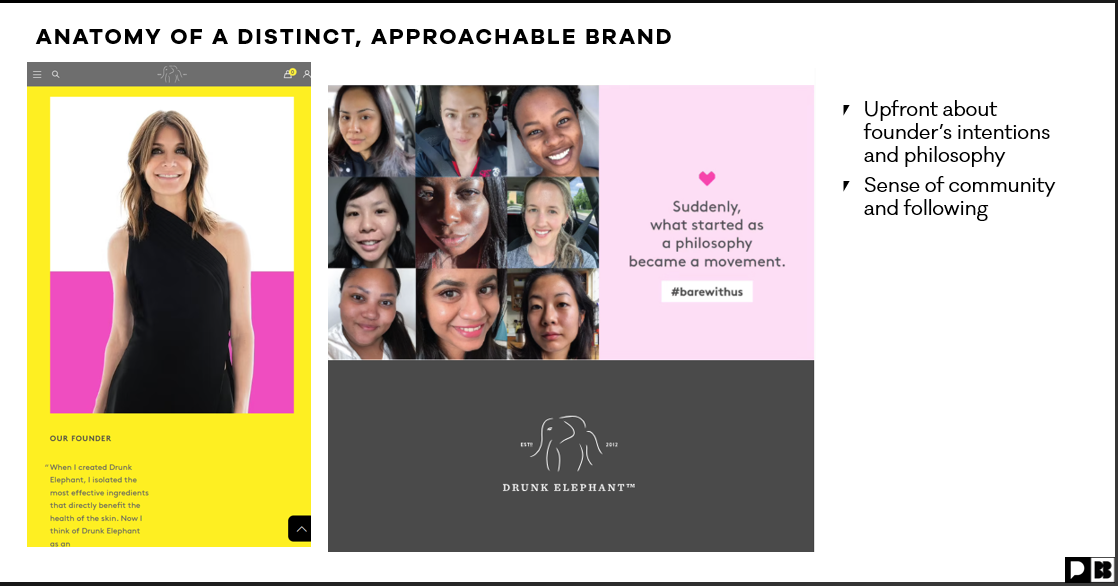
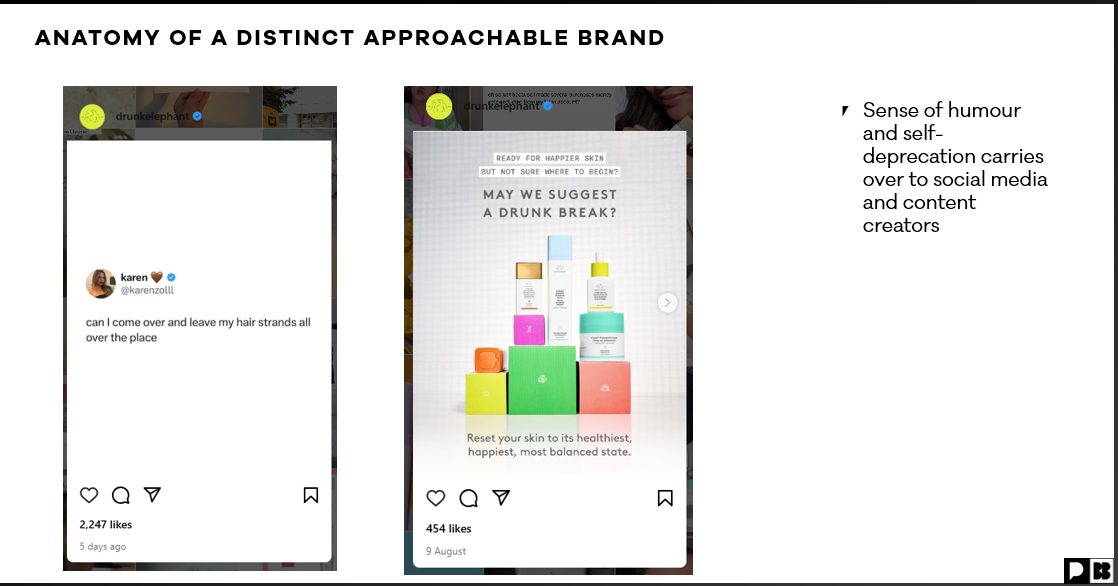
In terms of the brand’s recent woes, we suspect that the brand was confused by it’s own success with Gen Z and even Gen Alpha (under 15). Picked up by surfing waves of ‘Sephora kids’ perhaps because of its TikTok virality and vibrant colour palette, it seems that this boosted post Covid sales of the brand, until the teens dropped it as quickly as they had picked it up.
Those juvenile users of the brand may well have alienated those whom the brand was intended for – Millennials – who then dropped it too. A bit of a perfect storm.
In our view, like many skincare brands that took off during Covid, the brand mistook a short-term boost for long-term growth. Seeing sales decline as the youngsters dropped them for the next viral hit would have been alarming, but the brand is distinct, has a clear manifesto and an approachable personality. If they can make sure this resonates with their intended Millennial audience, they will win back Millennials and benefit from the Gen A & Z-ers who may re-discover their early affection for the brand.
Right Guard - The Driest Sense of Humour
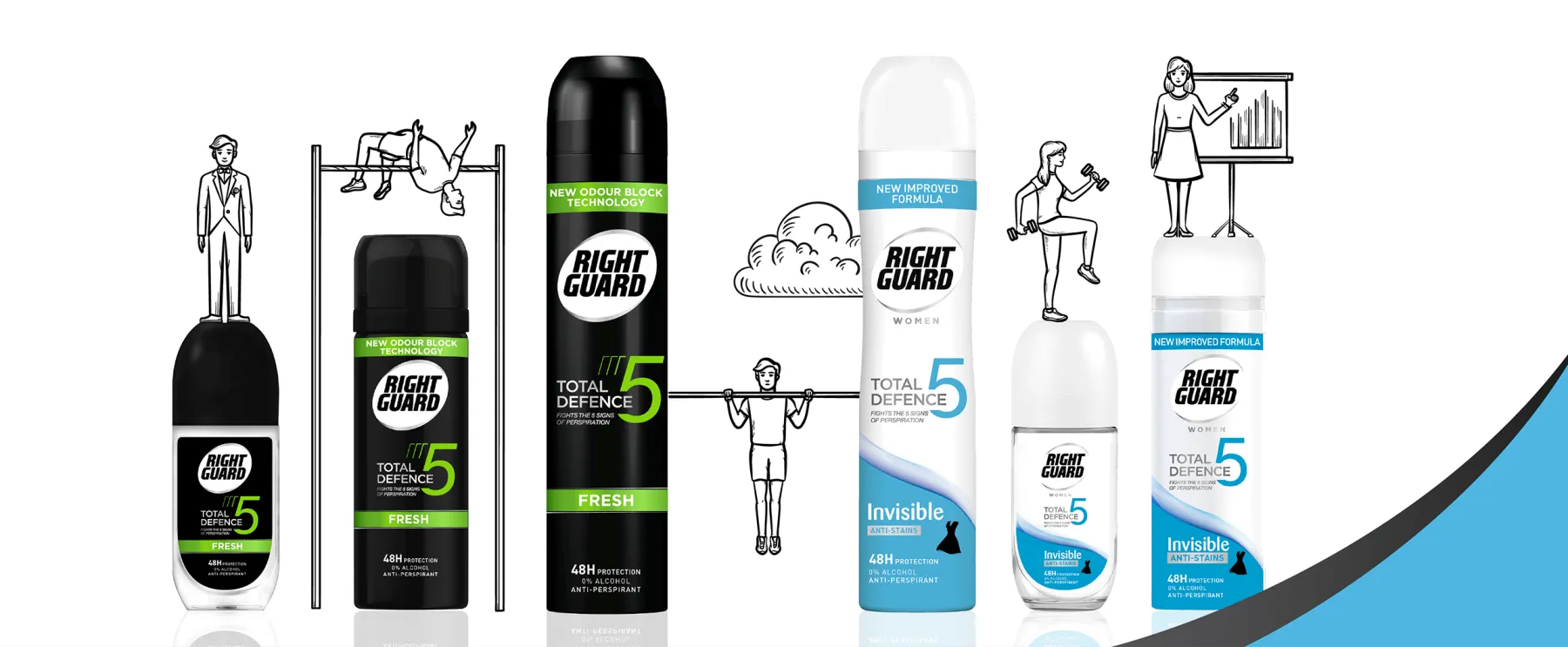
Pull London once had the pleasure of bringing Right Guard’s “Driest Sense of Humour” to life on social media.
We discovered that forcing people to be funny doesn’t work — but giving them beer and a Friday afternoon does. So we built a “funny committee”: an unlikely team of account managers, developers, and creatives who socialised together already, and then bonded over memes, mild chaos and creating Unilad-type content fueled by recent university experience.
The result? Genuinely funny content that stayed on-brand and human. Walking into a session (I wasn’t invited) felt like it must have done walking into a ‘Friends’ writers’ room — if Chandler had been obsessed with deodorant.

What seemed to happen was that once they had established the brand personality and tone of voice, things just seemed to keep on flowing. They just met up once a week to start-up the banter again and the writing flowed.
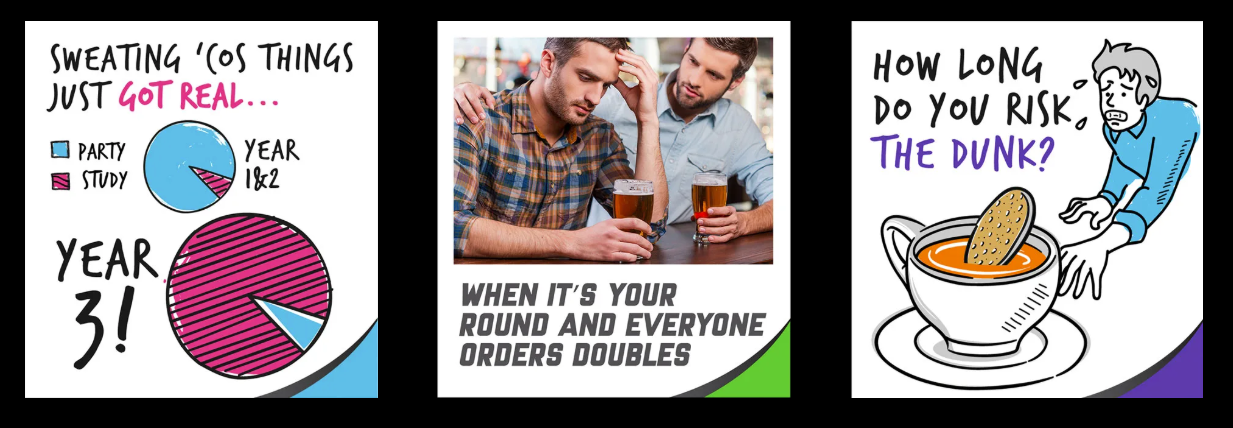
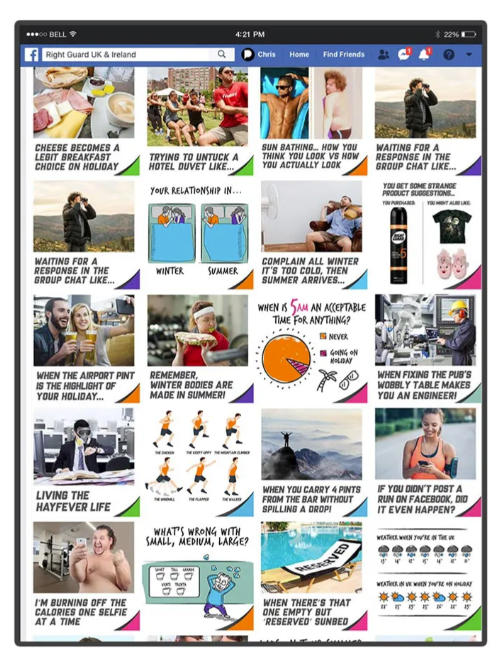
Health & Beauty’s Big Problem: The Feel-Nothing Epidemic
System1’s data is brutal: health and beauty ads are among the least emotionally engaging of all categories. Only finance manages to bore people more.
That’s a crisis. This industry literally sells feeling good — yet half of its ads make viewers feel absolutely nothing.
So, What Now?
If you’re a health and beauty brand, you have four choices:
- Act virtuous. Preach and preen about the planet and such. We’ve learnt consumers love that. . . And you won’t be distinct - because they all do.
- Be La Mer. Take yourself seriously, and follow the luxury brand playbook.
- Be Dull. Take yourself seriously, be bland and unnoticed.
- Be Entertaining. Build a distinct, human, emotionally engaging personality and it you can - entertain as well as engage.
Posted 13 November 2025 by Chris Bullick